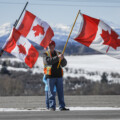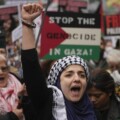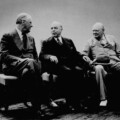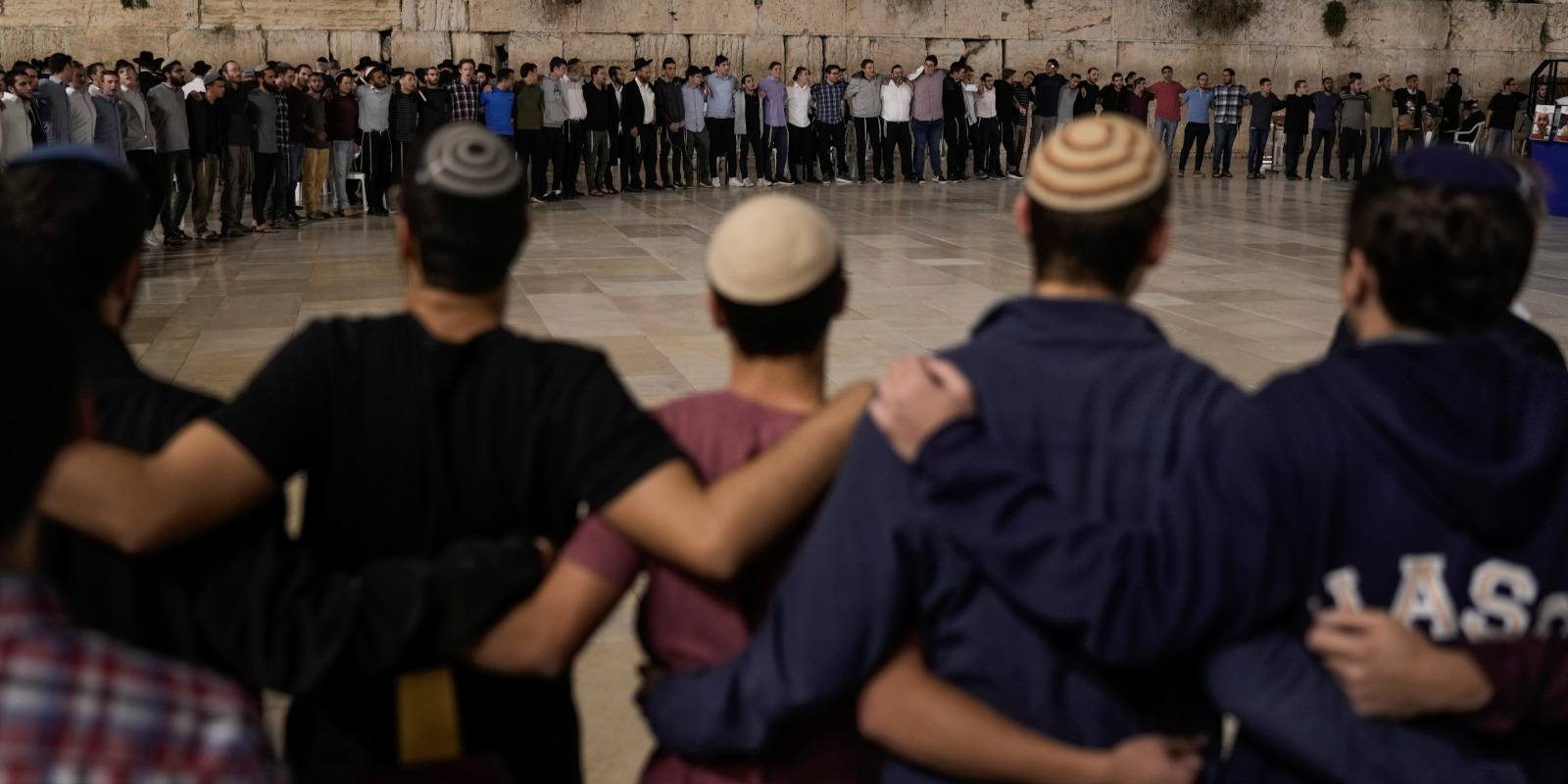The Hamas terrorist attack in southern Israel on October 7 killed more than 1,200 Israeli civilians—the most Jews killed in a single day since the Holocaust. In the aftermath of that attack, how divided is the Jewish diaspora regarding Israel and its military offensive in Gaza? Not very, according to some members of the community—and they are sharply critical of media outlets that are amplifying the voices of what they say is a very small minority of Jews who oppose Israel.
Many public figures around the world have been calling for a ceasefire between Israel and Hamas, whose operations are based in the Gaza Strip. But supporters of Israel’s offensive into Gaza, intended to destroy Hamas’ military capabilities permanently, say a ceasefire would only aid and reward Hamas.
Ariella Kimmel, vice-president of strategic communications and development for Winston Wilmont, says a ceasefire is not widely supported in the Jewish community. While she mourns the loss of Palestinian civilians, she believes that Hamas left Israel no choice but to conduct a military operation.
“Most of the community understands that Hamas must be destroyed,” says Kimmel. “There is no way Israel can live safely and securely otherwise.”
While Kimmel believes that most of the Jewish community shares this view, she points out that the media frequently quotes Jews who oppose Zionism, many of whom belong to organizations like Jewish Voice for Peace (JVP) or Independent Jewish Voices (IJV). Kimmel notes that while differences of opinion are natural, people should be careful when considering the positions held by these groups.
On October 31, for example, JVP was sharply criticized in a Jerusalem Post editorial as being representative of a “small minority of Jews who identify as anti-Zionist.”
“Groups like…the Orwellian-named Jewish Voice for Peace, and others, have been front and center at massive anti-Israel demonstrations, and individuals wearing kippot and wrapped in tallitot have drawn camera lenses in public protests against the Jewish state,” the editorial stated. “Anti-Zionist Jews are not representative of the Jewish community and they don’t speak in its name. They are as Jewish as the Westboro Baptist Church is Christian.”
Kimmel agrees. “Their views, statistically, are not representative of the community as a whole,” she says. “JVP has recently been organizing with Samidoun, which is directly affiliated with the Popular Front for the Liberation of Palestine [PFLP].”
The PFLP, a far-left group based in the Gaza Strip and the West Bank, has been listed as a terrorist entity by the U.S. government since 1997. In 1970, the PFLP took part in an attack on an Israeli school bus that killed or wounded 37 civilians and has conducted rocket attacks against Israel in the 21st century. In 2022, Samidoun organized a rally with JVP in New York City to call for the release of a PFLP leader being held in an Israeli prison.
Large media outlets such as the CBC have often interviewed members of similar organizations, including Independent Jewish Voices. Like JVP, IJV is critical of Israel. It has also faced fierce criticism from Jewish organizations such as B’nai Brith for its support of the Boycott, Divestment, and Sanctions movement that promotes economic sanctions against Israel.
An IJV co-founder and former Carleton University professor, Diana Ralph, contributed to a book that asserted 9/11 conspiracy theories, and in 2007 posted a $10,000 bail for a suspected terrorist. IJV itself has faced further controversy for posting a link to an article denying that six million Jews were murdered in the Holocaust. The organization retracted the link and blamed its posting on “sloppy social media use,” stating that IJV does not promote Holocaust denial.
Michael Tzion, a Toronto resident, says that the media’s desire to speak with such organizations reflects how people are more interested in reading news for controversy than for facts.
“The truth is the Jewish people have never ever been united as much as they are today,” he says. “Jews are rallying across the world supporting the people of Israel and showing their Jewish pride.”
Two recent polls support Tzion’s claim. An Angus Reid poll found that a vast majority of Canadian Jews, 78 percent, sympathize with Israel during the war, with a negligible percentage sympathizing with Palestine. A 2019 survey from the University of Toronto and York University found the same percentage of Canadian Jews felt a strong or moderate connection to Israel.
Tzion says Jews who oppose Israel are few and far between, but those who do exist are very vocal and receive the platforms and attention they are looking for.
“The Jewish community by and large is not even remotely divided. We have never been so united,” says Tzion. “It’s obvious in Israel, considering all the protests have stopped. And even if people disagree with the government, they understand that now is the time to unite and support our soldiers in the front lines.”

Protests against the current Israeli government had been ongoing since 2022, but have mostly ceased since the October 7 attack and Israel’s declaration of war on Hamas. Hundreds of thousands of Israelis, including those with dual citizenship and those living abroad, have registered for service in the Israel Defense Forces.
Kimmel agrees with Tzion that anti-Israel voices are amplified to fit a particular narrative—which is that Israel’s actions are so widely opposed that even Jews are against it.
“It’s an attempt to use those they view as ‘good Jews,’ with the views they want to amplify, rather than engaging with the wider Jewish community,” says Kimmel. “My biggest question for these anti-Zionist Jews is: Even if you oppose Israel, how can you not condemn Hamas? And where are your calls for the return of the hostages when you’re protesting against Israel?”
Kimmel continues: “They knew what they were doing when they committed the massacre on October 7. They knew the full force of Israel’s army would come down on them, and they have made clear they don’t feel responsible for Palestinian civilians.”
Kimmel believes a ceasefire will not be possible unless Hamas is fully disarmed, surrenders unconditionally, and releases every hostage taken in the October 7 attacks. As well, those responsible for the attack must be turned over to Israel.
Recommended for You

‘One of the most self-defeating tactical moves in history’: David Frum on Donald Trump’s obsession with tariffs and America’s increasing isolation on the world stage

‘He was hopeless on monetary policy’: Sir Jacob Rees-Mogg on Mark Carney’s tenure as governor of the Bank of England

Sean Speer: Donald Trump isn’t the biggest threat to Canada—the looming national unity crisis is

Michelle Stock: Al-Quds Day is a threat to Canada’s security and social fabric




